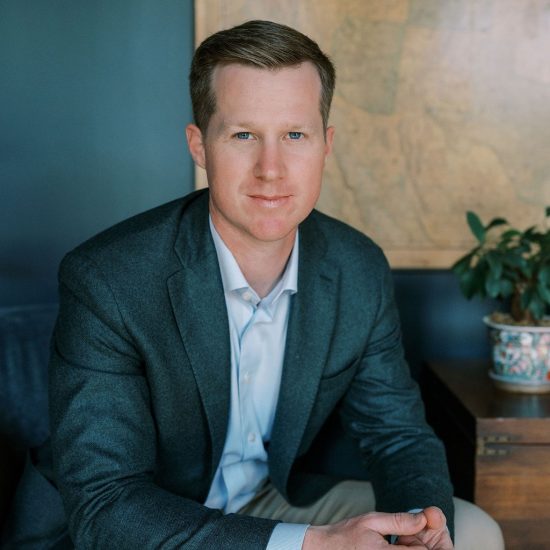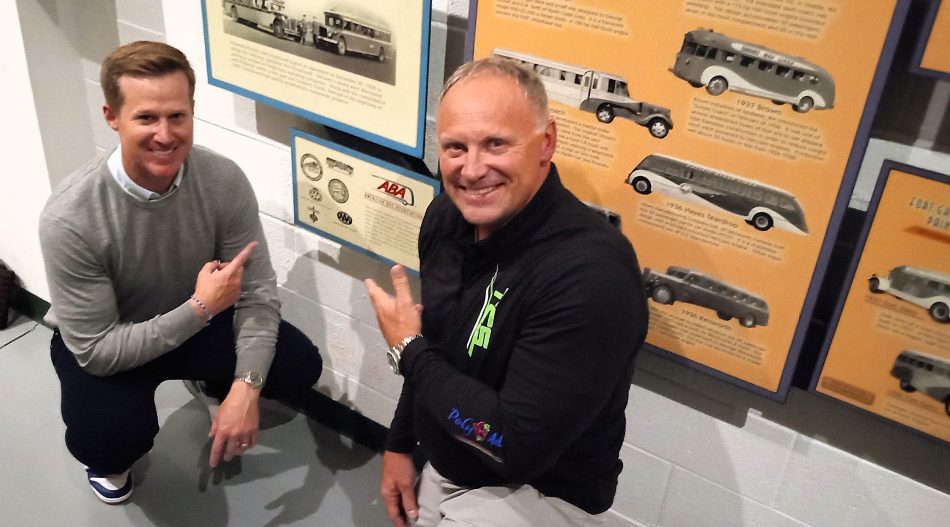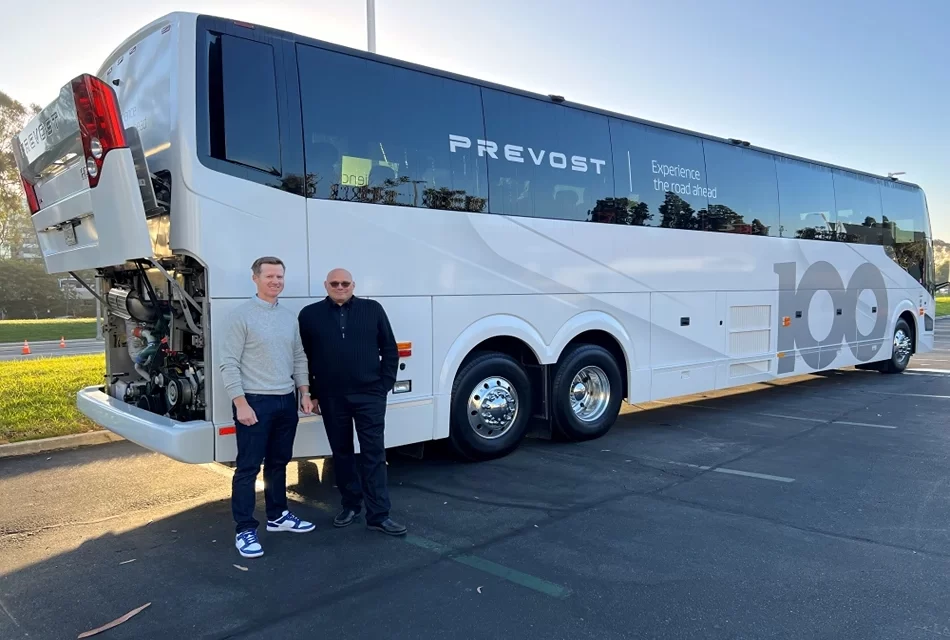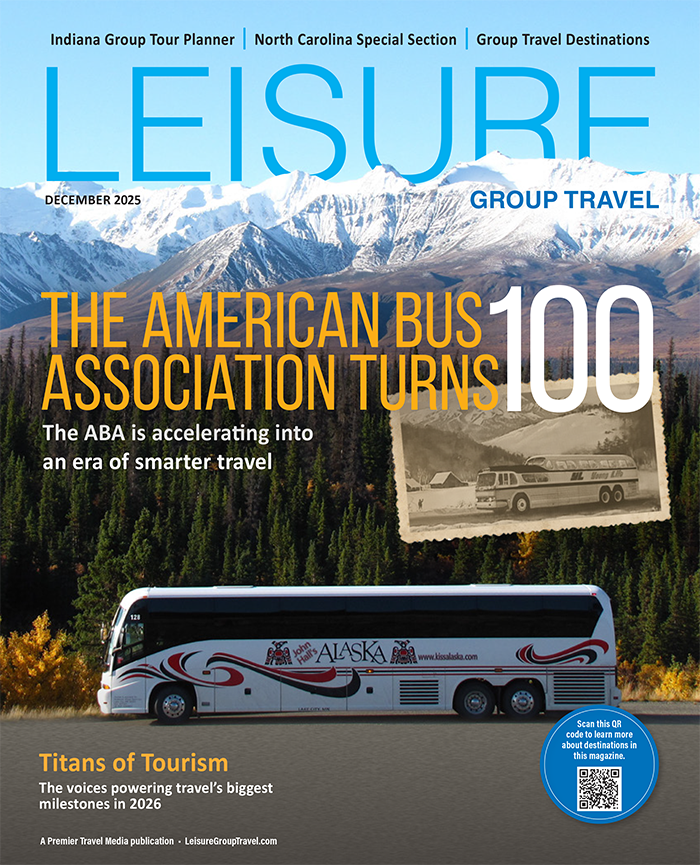Driving the Future of Group Travel: Insights from ABA’s New Leader, Fred Ferguson
Jeff Gayduk (JG): Tell us about your professional background and how it led to your role as president and CEO of the American Bus Association (ABA).
 Fred Ferguson (FF): I’m from Park City, Utah. My mom was a schoolteacher and my stepdad owned a small business selling souvenirs to tourists. Their business thrived due to Park City’s strong tourism market, which didn’t happen by accident. It was the result of thoughtful planning, from the airport infrastructure to attractions, restaurants, and hotels.
Fred Ferguson (FF): I’m from Park City, Utah. My mom was a schoolteacher and my stepdad owned a small business selling souvenirs to tourists. Their business thrived due to Park City’s strong tourism market, which didn’t happen by accident. It was the result of thoughtful planning, from the airport infrastructure to attractions, restaurants, and hotels.
Park City is a case study in strategic collaboration among stakeholders, and it taught me how tourism creates jobs and economic opportunities. My parents’ store, Dugan’s Wests, was their lifeblood—and mine by extension. That’s what excites me about ABA: we represent all elements of group travel—bus operators, destinations, hotels, restaurants, tour operators, and more. I want to help create more opportunities like Park City, where tourism drives thriving communities.
Professionally, I spent eight years in Congress as a chief of staff working on legislation and regulations. Then, I transitioned to a corporate role at a publicly traded company that manufactures outdoor products, like CamelBak water bottles and Bell helmets. Joining ABA feels like the perfect fit, combining my experiences in policy, business, and advocacy. ABA’s broad coalition makes this one of the most dynamic roles in D.C.
JG: You took over from Pete Pantuso, who had a long and respected tenure at ABA. What has that transition been like?
FF: Pete has been an incredible mentor throughout the transition. He gave me access to everything I needed while stepping back to let the new team take over.
These first months have been about listening, learning, and meeting as many members, board members, and staff as possible. One big observation is how hard the ABA staff works despite challenges like a shrinking team since 2018. The pandemic accelerated those cuts, yet the team maintained high output—a credit to Pete and the staff.
My focus now is on providing more resources for the team. For example, we sold ABA’s oversized office space, which Pete initiated, to reinvest in hiring and resources for our members. We’re moving to Capitol Hill, which better fits our size and needs while putting us closer to legislative action. It’s an early but significant step toward creating a stronger, more sustainable ABA.
Plan your next adventure with the December Leisure Group Travel edition. Subscribe now to stay inspired!
JG: What other specific areas are you trying to concentrate on, both within ABA or for the larger motorcoach industry during your first year? Have you set an agenda of things you’d like to tackle, or are you focusing on what you’re hearing and think can be addressed?
FF: I’ve learned that ABA’s Marketplace is one of the most transformative experiences in our industry. Since I haven’t experienced it yet, I’ve been hesitant to roll out a detailed priority list until I’ve attended. Marketplace isn’t just critical for revenue—it’s also where you find a critical mass of member participation.
I’ve planned listening sessions, speaking engagements, and one-on-one meetings at Marketplace to hear directly from members and continue learning. What I uncover there will shape the direction we take moving forward.
That said, a significant milestone is looming: ABA’s 100th anniversary in 2026. Reaching a century is something less than 1% of organizations achieve, so we must be prepared to capitalize on this moment.
The timeline I see is using Marketplace to connect with members and understand their perspectives, dedicating much of 2025 to building a strategic plan for the next three years. This approach ensures we’re not rushing but instead creating a roadmap that reflects member input, policy needs, and organizational goals.
JG: Do you anticipate the strategic direction of ABA to differ going forward?
FF: Thanks to Pete Pantuso’s leadership, ABA is in great shape financially and operationally. This is not a turnaround job, which gives us the flexibility to embrace the changes happening in the industry.
Tourism, travel, and charter are evolving. It’s an ideal time to take stock, get our ducks in a row, and craft a plan that has buy-in across all ABA levels. Historically, strategic plans have been developed by the board and senior staff. While that’s valuable, today’s world of instant communication and social media demands a broader approach.
I aim to bring our grassroots membership into the conversation, giving them a seat at the table. Whether it’s by taking the strategic plan on the road or hosting member input sessions, we’ll be stronger if we build this together.
Additionally, I’ve noticed an influx of new talent in our industry, which is encouraging. However, we need to train and nurture these professionals to ensure they succeed.
Uncover travel ideas in our December Issue. Love it? Subscribe today for more!

JG: What do you see as some of the biggest challenges our industry faces today?
FF: Regulatory issues, especially those involving electric vehicle (EV) mandates, are a major challenge. Government-imposed deadlines for EV adoption—like fully electric fleets by 2027—are difficult for operators, given the lack of infrastructure and financial feasibility.
California’s aggressive EV policies, for example, often set a precedent for other states, leading to a fragmented regulatory landscape. For group travel businesses that cross state lines, this patchwork creates operational headaches.
Motorcoach travel is the most efficient transportation option available today. While electric vehicles are the future, transitioning to a fully electric system is a generational challenge. Infrastructure like national charging networks for commercial vehicles simply doesn’t exist yet.
Meanwhile, diesel-powered buses play critical roles during emergencies. Whether evacuating people during hurricanes or delivering supplies after disasters, motorcoaches are invaluable. Their reliability doesn’t depend on an electrical grid, which can fail during crises.
Until electric infrastructure catches up, we must recognize the critical role diesel-powered buses play. Our industry stands ready to adapt, but the path forward requires thoughtful investment in sustainable solutions.
Part of our advocacy must involve educating non-bus operators—hotels, attractions, and restaurants—about how these regulations impact them. The ripple effects are real, and we need their voices in our coalition.
The same applies in reverse: issues impacting hotels or restaurants will ultimately affect motorcoach operators. By building a policy agenda that unites these sectors, we can amplify our voice and strengthen our advocacy efforts.
Discover group travel inspiration in our December Issue. Stay ahead with expert tips—subscribe now to never miss an edition!
JG: Do you see potential advocacy opportunities in conjunction with other associations?
FF: Absolutely. We’re elevating our engagement with the U.S. Travel Association by joining their Engage membership level, which provides greater access to their policy expertise and allows us to insert group travel perspectives into their agenda.
We’re also joining the Outdoor Recreation Roundtable, focusing on improving transportation to national parks and public lands. Motorcoaches are an excellent solution for reducing overcrowding and emissions in these areas, so being part of these coalitions lets us advocate for sustainable travel solutions.
These partnerships help ABA not only amplify its message but also benefit from the specialized expertise of these groups, making our advocacy more impactful.
JG: ABA has a strong community spirit, which I’m sure you’ve seen in your first few months on the job. How do you ensure that continues under your leadership?
FF: That community spirit has been a bright spot for me. You don’t fully grasp it from a website or interview—it’s something you experience in person, through events and relationships.
When I left my previous role at Vista Outdoor, I was one of the longest-tenured employees after just 7 ½ years. At ABA, there are staff members with two decades of tenure, and members who’ve met their spouses at Marketplace and now bring their kids. That sense of connection is rare, and it’s something I’ve missed.
Maintaining this culture starts with recognizing its value. During planning discussions, I’ve asked, “Can we cut costs by scaling back certain events?” The response often highlights the irreplaceable role these gatherings play in fostering community, which tells me what’s truly untouchable.
At Vista, I saw firsthand how focusing on shared values—like conservation and getting kids outdoors—can unite seemingly disparate groups. ABA has its own shared success: the strength of the group travel industry.
By fostering intentional gatherings that balance business and personal development and focusing on what unites us, I’m committed to being a steward of this culture, not someone imposing unnecessary change.
Get inspired with the December Leisure Group Travel magazine. Subscribe now for all upcoming issues.







